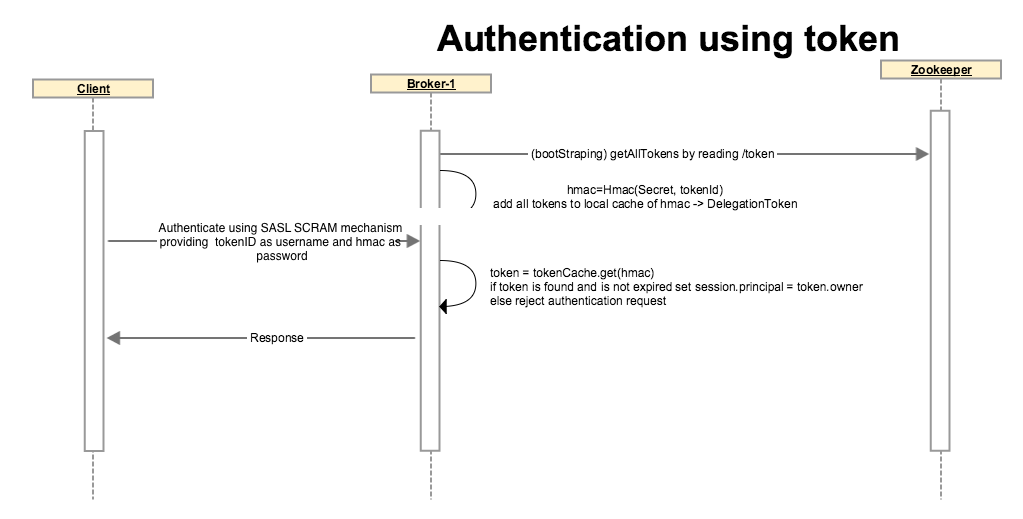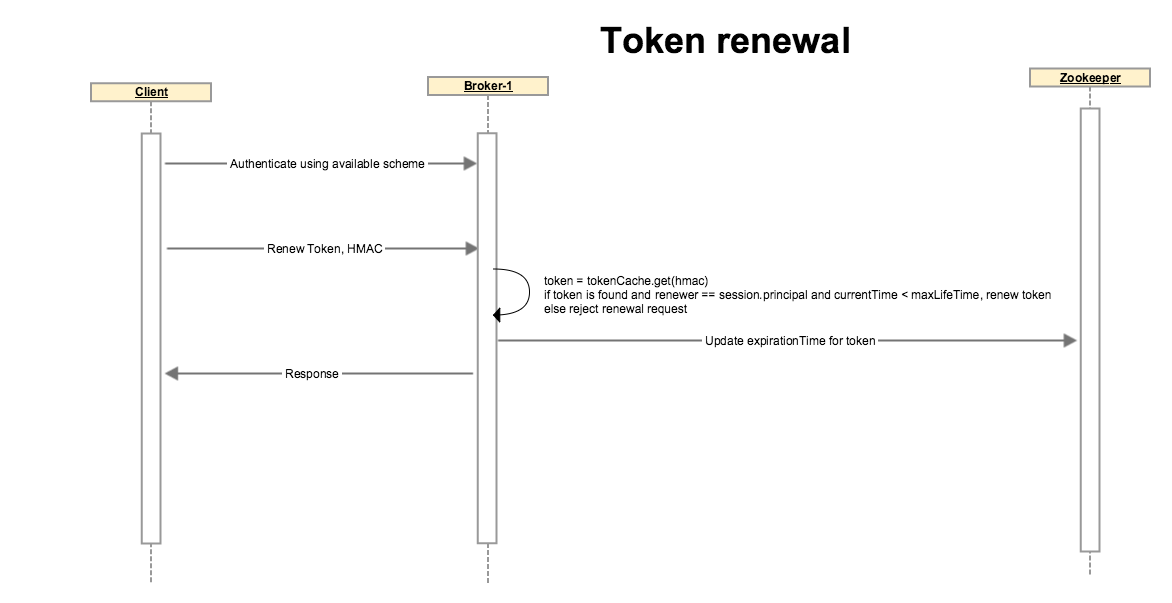...
| Code Block |
|---|
RenewDelegationTokenResponse => ErrorCode ErrorCode => INT32 ExpiryDateMs => INT64 |
Field | Description |
|---|---|
ErrorCode | |
ExpiryDateMs | timestamp (in msec) at which this token expires. Unit is milliseconds since the beginning of the epoch (midnight Jan 1, 1970 (UTC)). |
Possible Error Codes
* DelegationTokenDisabledException...
SCRAM is a suitable mechanism for authentication using delegation tokens. KIP-84 proposes to support SASL SCRAM mechanisms. Kafka clients can authenticate using SCRAM-SHA-256, providing the delegation token HMAC as password.
Server will look up the token from its token cache, if it finds a match and token is not expired it will authenticate the client and the identity will be established as the owner of the delegation token.
If the token is not matched or token is expired, broker throws appropriate exception back and does not allow the client to continue.
Token renewal
The (Admin/Delegation Token) client authenticates using Kerberos or any other available authentication scheme. A token can not be renewed if the initial authentication is done through delegation token, client must use a different auth scheme.
Client sends a request to renew a token with an optional renew life time which must be < max life time of token.
Broker looks up the token, if token is expired or if the renewer’s identity does not match with the token’s renewers, or if token renewal is beyond the Max life time of token, broker disallows the operation by throwing an appropriate exception.
If none of the above conditions are matched, broker updates token’s expiry. Note that the HMAC-SASM is unchanged so the token on client side is unchanged. Broker updates the expiration in its local cache and on zookeeper so other brokers also get notified and their cache statuses are updated as well.
Token expiration and cancellation
...

